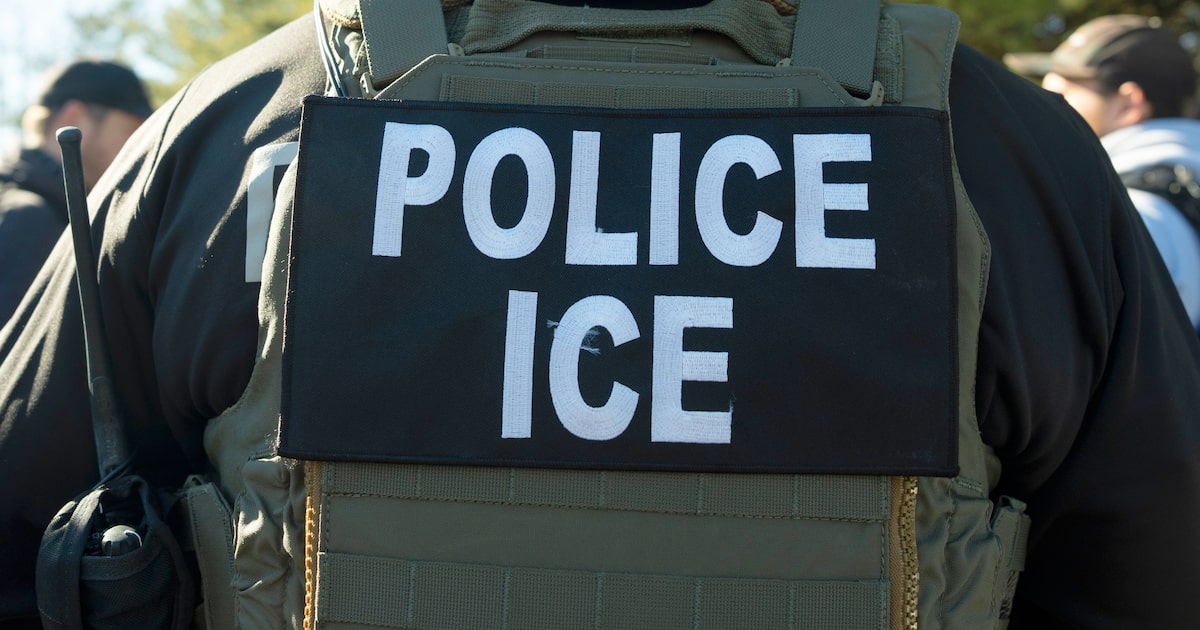No federal or state agency has asked Dallas police for help with the surge in immigration enforcement so far this year under the Trump administration, Chief Daniel Comeaux wrote to a U.S. congresswoman in a letter obtained by The Dallas Morning News.
Comeaux’s letter, dated Aug. 20, is in response to a list of questions sent by U.S. Rep. Julie Johnson early last month. The Farmers Branch Democrat posed six questions she wrote were informed by “public concern raised by constituents and community oversight bodies” over whether and to what degree the department has cooperated with U.S. Immigration and Customs Enforcement.
Members of the Dallas Community Police Oversight Board were among those raising concerns, with some requesting an audience with Comeaux to field questions. The degree to which local law enforcement agencies collaborate with federal agencies such as Immigration and Customs Enforcement has fueled discussions and criticism from immigrant advocates.
Comeaux’s letter — obtained by The News through an open records request and released Thursday by Johnson’s office — at times echoed the city’s earlier public statements this year in response to rising questions over immigration enforcement.
Breaking News
The chief reiterated, for example, that Dallas police are not permitted to stop or question someone solely to determine immigration status.
“By state law, local entities cannot prohibit or materially limit the enforcement of immigration laws,” Comeaux wrote in a line echoing information posted to the city’s webpage titled “Quick Facts: Federal Immigration Enforcement.” “Local law enforcement agencies, including the Dallas Police Department, regularly interact with other agencies, and the Dallas Police Department will continue to assist these agencies upon request while adhering to applicable laws.”
Speaking before the Community Police Oversight Board for the first time earlier this year, city attorneys ran interference when board members began asking Comeaux about the degree to which the department works with federal agencies on immigration enforcement.
Some board members and meeting attendees who spoke during the meeting’s public comment period voiced concerns about the possible chilling effect collaboration could have on residents.
Examples of local-federal collaboration have raised concerns from immigration advocates in Houston. In July, the Houston Chronicle reported that more than half of the calls made by Houston police to ICE so far that year happened during routine traffic stops.
More than 50 local law enforcement agencies have entered into more formal agreements under Section 287(g) of the Immigration and Nationality Act, which allows the Department of Homeland Security to train and deputize local officers to perform certain immigration enforcement duties.
The majority of participants are county sheriff’s offices in Texas, including in Tarrant County, according to a list of program participants published by ICE. Last month, the city of Keller signed an agreement, making it the state’s largest city to do so.
Dallas police have said the department has not explored the initiative. Comeaux wrote in his response to Johnson that the department has not entered into an agreement — called a “memorandum of understanding,” or MOU — with the Department of Homeland Security or Immigration and Customs Enforcement.
The department, the chief wrote, does not “proactively collect immigration status information during routine policing.” Paperwork completed at the Dallas County jail, however, includes questions regarding whether the arrestee is a U.S. citizen and their place of birth.
“If the information is provided to Dallas police officers by the arrestee, the officers include the answer and submit it to the Dallas County jail,” Comeaux wrote.
